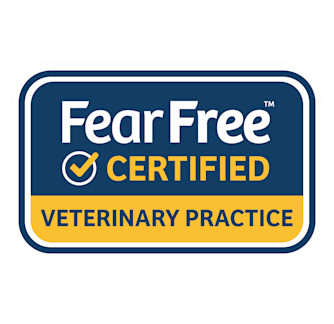Veterinary Emergency and Referral Center (VERC)

Blood Bank FAQ
GENERAL INFORMATION
What is the VERC Blood Donor Program?
The Blood Donor Program at the VERC helps save the lives of critically ill or injured pets across Hawaii. Our program enrolls healthy dogs and cats who can safely donate blood, which is processed and stored for use in emergency and specialty care patients.
Why do pets need blood transfusions?
Pets may need transfusions due to:
Traumatic injuries (e.g., being hit by a car)
Surgery with significant blood loss
Severe anemia (from parasites, autoimmune diseases, or infections)
Bleeding/clotting disorders
Certain cancers or toxicities
Do dogs and cats have blood types?
Yes! Dogs have over a dozen known blood types, but DEA 1 is the most important for transfusions. Cats have three main types: A, B, and AB. While most cats are Type A, many cats in Hawaii are Type B.
Why don’t you just buy blood for pets like human hospitals do?
Unlike human hospitals, veterinary facilities don’t have access to large, centralized blood banks. Most rely on volunteer donor programs or maintain small in-house supplies. While we can purchase blood from a commercial veterinary blood bank, it must be shipped from the mainland—and it’s often on backorder. That means we can’t always get the products our patients need when they need them. This is why local pet donors are absolutely essential.
How many animals actually get transfusions?
At VERC, transfusions are administered on a regular basis. On average, at VERC, 15-20 patients receive blood products per month. Conditions like internal bleeding, immune-mediated disease, and surgical blood loss are common.
How does my pet’s blood donation help other pets?
One donation can help up to four pets in need. After collection, your pet’s blood is processed into components, typically packed red blood cells and plasma, usually resulting in four units of usable blood products.
Every donation represents life, hope, and healing for families across the islands. Your pet’s gift could help another pet survive surgery, recover from trauma, or manage a chronic illness.
ELIGIBILITY + ENROLLMENT
What are the requirements to donate for dogs and cats?
Friendly and in good physical condition
Age: 1–7 years old
Dogs should be spayed or neutered (some exceptions may apply)
Not on a raw food diet
Dogs: at least 33 pounds (15 kg)
Cats: indoor only and at least 10 pounds
Current on vaccines
No history of blood transfusions
No history of heart murmurs or heart disease
Able to donate at least every 8 weeks
Ability to make at least a 1-year commitment
How does my pet become a donor?
To determine if your dog or cat meets the donor requirements, you can fill out our online Blood Donor Registration Form.
If your pet appears eligible, we will reach out to your primary care veterinarian for medical and vaccination records. After review, we’ll schedule a complimentary screening visit at VERC.
What happens during the screening appointment?
We’ll discuss the screening and donating process in more detail and answer any questions you have.
A full physical exam by a veterinarian
Blood typing and lab screening if the pet appears to be a good candidate as a blood donor.
Once blood work has returned from the lab, we’ll be in touch with you about the results and share our determination on whether your pet can be enrolled in our donor registry. We’ll also pass along the blood work results to your primary veterinarian.
Can my pet be a universal donor?
Cats and dogs do not have a universal donor type. However, in dogs, we consider DEA 1 negative type to be the closest to a universal donor, which means their blood can be safely administered to most other dogs. This makes DEA 1 negative type donors extra special.
THE DONATION EXPERIENCE
What is the blood donation process for a dog or cat?
Donations are scheduled appointments that typically take under 2 hours.
On donation day:
Health check and blood work to check the donor’s percentage of red blood cells and white blood cell levels to make sure it’s safe for them to donate that day.
Mild sedation is given (with owner consent) if needed
Blood is collected in a quiet, calm room with the pet laying on their side. A small area of hair is shaved over the vein.
Post-donation care includes treats, a light meal, praise…and sometimes a nail trim!
Do I stay with my pet during the donation?
Owners do not stay in the room as pets are often more relaxed with staff. You’re welcome to wait in the lobby or leave and run some errands, and we’ll call you when your pet is ready to go home.
Do I need to bring anything with me?
You don’t need to bring anything. However, if you’d like, feel free to bring your pet’s favorite toy, blanket, or treats to help them feel more comfortable. If your pet has any food sensitivities, please be sure to bring treats from home.
SAFETY + COMFORT
Is it safe for pets to donate blood?
Yes. Under professional veterinary supervision, blood donation is safe and well tolerated. Most dogs do not require sedation, but sometimes they do until they become more comfortable with the process. Sedation is usually needed for cats. Your pet’s comfort and safety is always the top priority.
Is donating scary or stressful for pets?
For most pets, it’s a low-stress, pleasant experience where they know they will be fed treats and given a lot of praise. Donations happen in a quiet room with soft bedding, gentle handling, and treats. We assess temperament to ensure a good fit prior to donating.
Will my pet feel pain or discomfort?
No. The process is similar to a simple blood draw with just a small pinch. When sedation is used, it’s to help keep the pet still for the short time they are donating.
Why does VERC sometimes use sedation?
Due to high demand and a limited donor pool, we accept friendly, sometimes active, pets who may need light sedation to lie still for several minutes. This helps us ensure that we have enough donors so that all patients have access to blood when needed.
How much sedation do donors receive?
We aim for the lowest amount necessary:
If dogs need sedation, they are still awake, just a little drowsy. We work to reduce or eliminate sedation over time as the pet becomes more comfortable with the process.
Cats usually need medium to heavy sedation and are closely monitored. All cat donors have an intravenous catheter placed so that we can administer fluids to replace the donated blood.
LOGISTICS + COMMITMENT
What commitments are required?
We ask for a one-year commitment, with regular donations (dogs typically every 6–8 weeks), and that your pet stays up to date on vaccinations and parasite prevention.
How do I prepare my pet for donation day?
Fast for 8–12 hours beforehand (water is okay)
Avoid neck collars/leads for 24 hours post-donation; use a harness instead
If your pet is anxious, we may provide mild anti-anxiety medication in advance
What if I change my mind?
You can withdraw at any time. We do ask for a year’s commitment due to the cost of screening and training, but your pet’s well-being comes first.
How is the blood stored and used?
Blood is separated into components (red cells and plasma). The units are stored under strict veterinary guidelines and are used up to their expiration date, which can be 28 days for packed red blood cells to 5 years for frozen plasma. When a sick or injured patient requires a blood product, we want to make sure it’s there for them. Blood products are used at VERC and other local clinics.
POST-DONATION CARE
What should I watch for after a blood donation?
Your pet will go home with a neck wrap that can be removed after 30 minutes. Monitor the shaved area for any swelling or worsening bruising. It’s normal for your pet to be quiet during the afternoon after donating, and they should be kept quiet and exercise restricted.
Normal mild side effects may include:
Sleepiness or lethargy
A small amount of bruising at the draw site
Soft stool
Most pets are back to normal by the next morning.
If you feel your pet is more lethargic than expected, starts vomiting, or has difficulty walking, please contact the VERC Emergency Service right away at 808-735-7735.
Will it affect my pet’s activity level after?
The day of donation, your pet may be quieter than normal. They should spend the afternoon relaxing (no strenuous activity). The day after donation, they should be back to their normal selves and can resume normal activity.
Will someone follow up?
Yes! Our blood bank coordinator will check in with you to make sure your pet is doing well and answer any questions.
DONOR PERKS
Is there a way my pet will be recognized as a donor?
Yes! At VERC, we recognize our donors with lots of love and belly rubs, plus social media shout-outs, stories, pictures on our website, and more (with your permission).
What benefits do donors receive?
Your dog or cat will get:
Free yearly physical exam and blood work
Blood typing
Infectious disease testing (like heartworm screening and tick-borne disease screening)
Exams prior to each donation
Good Karma!

